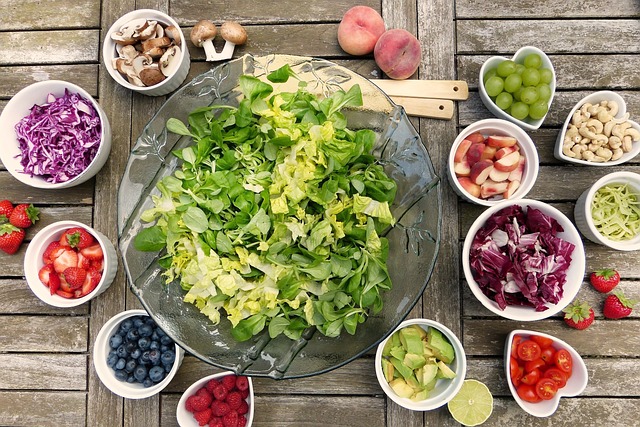5 Surprising Foods That Are More Likely to Give You Food Poisoning Than You Thought!

5 Surprising Foods That Are More Likely to Give You Food Poisoning Than You Thought!
When it comes to food poisoning, our minds often jump to undercooked meats or raw eggs. However, several other unsuspecting culprits are lurking in our kitchens that can put us at risk. Today, we will explore five surprising foods that are more likely to give you food poisoning than you might have thought. From leafy greens to rice, these seemingly harmless foods can harbor dangerous pathogens if not handled or properly cooked.
Foods That Are Likely to Give You Food Poisoning
Leafy Greens
While leafy greens like spinach and lettuce are enriched with essential nutrients, they can also carry harmful bacteria such as E. coli and Salmonella. These pathogens can contaminate the greens during the growing, harvesting, or processing stages. To reduce the risk, it's crucial to thoroughly wash leafy greens before consumption and store them at the appropriate temperature. Additionally, cooking them can further eliminate potential pathogens, ensuring a safer meal.
Sprouts
Sprouts, such as alfalfa, mung bean, and radish sprouts, are often hailed as a healthy addition to salads and sandwiches. However, they have been associated with numerous foodborne illness outbreaks. Sprouts are grown in warm and humid conditions, which create an ideal environment for bacterial growth. Salmonella, E. coli, and Listeria monocytogenes are common culprits in contaminated sprouts. To minimize the risk, it's advisable to cook sprouts thoroughly or avoid them altogether, especially for individuals with weakened immune systems.
Raw Milk and Cheese
Raw milk and cheeses made from raw milk have gained popularity among food enthusiasts due to their perceived health benefits. However, they can also harbor dangerous bacteria such as Campylobacter, Salmonella, and Listeria. Unlike pasteurized milk and cheese, which undergo a heat treatment to kill harmful bacteria, raw milk products retain these pathogens. It's crucial to note that consuming raw milk or unpasteurized cheeses can pose a significant risk, particularly for pregnant women, children, and individuals with compromised immune systems.
Rice
Rice is a staple food consumed by millions worldwide. However, if not handled and stored properly, cooked rice can become a breeding ground for Bacillus cereus, a bacterium known to cause food poisoning. The spores of Bacillus cereus can survive cooking and may multiply if rice is left at room temperature for an extended period. To prevent food poisoning, it's important to cool cooked rice quickly and store it in the refrigerator. Reheating rice should be done thoroughly, ensuring it reaches a temperature of at least 165°F (74°C) throughout.
Deli Meats
Deli meats, including ham, turkey, and roast beef, are a popular choice for sandwiches and salads. However, they have been associated with outbreaks of Listeria monocytogenes, a bacterium that can cause severe illness, particularly in pregnant women, the elderly, and individuals with weakened immune systems. Listeria can survive in cold environments, such as refrigerators, and can be present in pre-packaged deli meats. To minimize the risk, it's recommended to consume deli meats promptly after purchase, store them at the correct temperature, and follow proper hygiene practices during handling and preparation.
Conclusion
Food poisoning can be caused by more than just the obvious culprits like undercooked meat and raw eggs. Leafy greens, sprouts, raw milk and cheese, rice, and deli meats are surprising foods that can put us at risk if not handled or prepared correctly. By following proper food safety practices such as washing produce, cooking thoroughly, storing at the appropriate temperature, and practicing good hygiene, we can greatly reduce the likelihood of falling victim to foodborne illnesses. Stay informed, be cautious, and enjoy your meals without compromising your health.
Helpful Picks:
- Best and Worst Food For Your Liver
- 9 Foods You Should/Shouldn’t Wash
- 5 Surprising Effects of Greasy Foods
- Worst Food For High Blood Pressure
- Are There Foods That Can Slow Down Aging?
- Boost Your Health With High Fiber Foods
